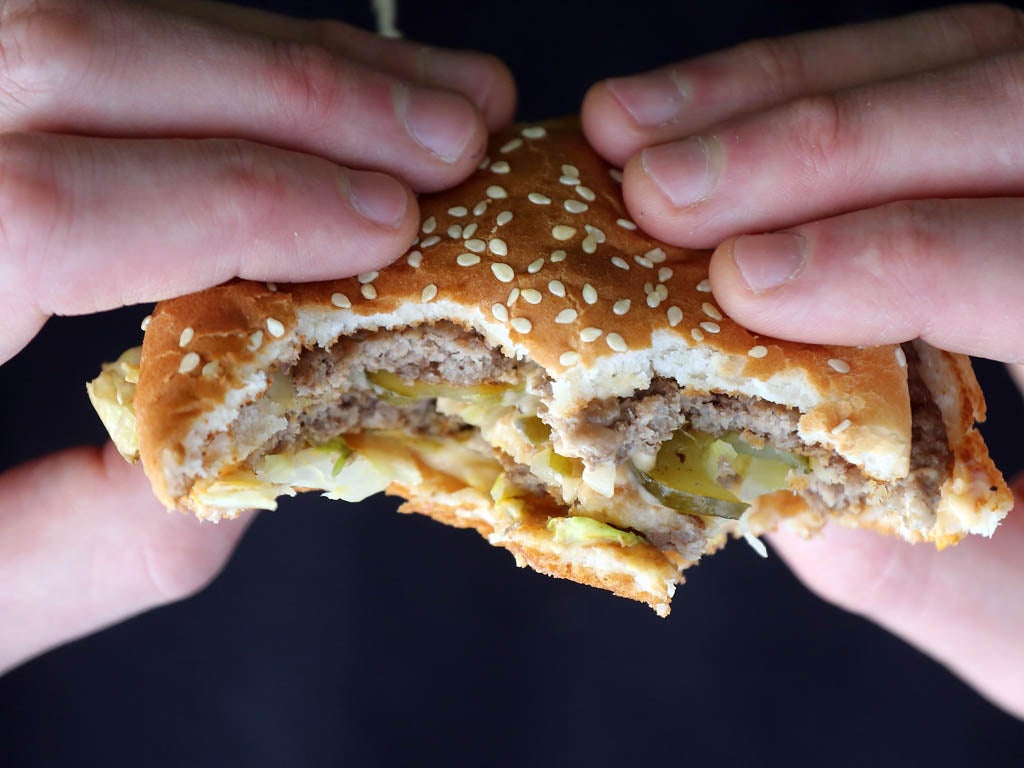Public health minister is right - deprived families are more likely to be obese and we have to intervene
If young people aren't educated about healthy eating, they'll grow up following their parents' bad habits


I live in a borough, 40 miles from London, which has extensive pockets of poverty and deprivation.
Unemployment levels are high and there are large numbers of single parent families, many of them led by very young, poorly educated mothers. And from casual observation I’m very much afraid that health minister Anna Soubry is right: the unpalatable truth is that there is now a correlation between poverty and obesity. Many of the people I see in my home area are grossly overweight – far more than you’d see in a prosperous area – and of these the majority are clearly struggling with deprivation too.
It is perfectly possible to be both malnourished and obese. Just eat large quantities of cheap fat and sugar-laden junk food – such as crisps, fizzy drinks, burgers in buns and so on – instead of costlier options like fruit, vegetable and healthy protein.
The reasons are complex. Some of these people, sadly, don’t know enough about food and nutrition to buy and prepare healthy food – which can be done on a low budget if you know how - and that ignorance has been compounded by far too many schools getting rid of their formerly excellent home economics departments in the 90s. Home Economics and related subjects such as cookery are not part of the National Curriculum, introduced in 1988. Therefore far fewer schools now teach children about food than once did.
And the immensely powerful advertising industry still – despite lip service to health issues – ruthlessly conditions millions of British people every day to the view that nothing tastes better than a low grade burger from an American fast food outlet. Why worry about health when you can make a profit? That presumably is also why the so-called Health and Leisure Centre five minutes from my front door is now – “New for the new year” – proudly promoting twelve different sorts of chocolate bar in its café. They are simply providing what they know will sell to local people - and compounding the obesity problem for financial gain.
Worryingly unhealthy eating habits set in very young. Even if you give some of these fat children from poor families better food, many don’t actually want it. Which brings us to school dinners.
A few years ago we heard a lot about raising the standard of school dinners when Jamie Oliver campaigned. Since then restaurateur Henry Dimbleby has been commissioned by the government to recommend ways of making school dinners both healthier and more attractive but that initiative seems to have gone quiet lately.
Meanwhile, even if the food is good, very few schools compel pupils to have school meals and many take ‘packed lunches’ which may be little more than a bag of sweets and a cola drink. Older pupils can be seen all over the country – at lunchtime in schools which can’t or won’t keep them on the premises – or immediately before and after lessons buying fast food. It is hardly surprising that so many of them are overweight.
Anna Soubry is really making a social class point of course, and tragically, she is right about that too. Although there will be lots of exceptions, and of course you can’t generalise, on the whole middle class children of educated parents are more likely to sit down at a table to a cooked family meal than their counterparts from poorer homes. As Ms Soubry points out, many children now simply graze in front of screens and large numbers of families don’t own a table to eat at. And that isn’t conducive to healthy eating either.
Children who sit up to eat with other family members usually eat healthier meals, as well as getting the benefits of social interaction – as many studies have shown. The trouble is that the people whose children need this most, often don’t own tables and may not know how to prepare a healthy meal with limited means anyway.
So how to you break into this cycle given that many parents, failed by their education through no fault of their own, are passing poor eating habits on to their already disadvantaged children?
The first priority is that every secondary school should be required to reinstate home economics as a matter of urgency so that at least this generation will be in a better position to pass food expertise to the next. Yes, if would be expensive to rebuild facilities and train teachers but given what the obesity crisis is likely to cost the country in the next few decades, we can’t afford not to do it.
We should also be offering healthy food education at every possible opportunity especially in deprived areas such as parts of my home borough. That includes classes for pregnant women and social cooking sessions, in community centres and other venues, offered to parents. Free evening classes in cookery should be available in local colleges to people with young families. Supermarkets could be given tax breaks for offering facilities and staff to teach skills. There’s scope for volunteers too, especially older people who’ve cooked all their lives and know how to do it. Some of this is happening in some places. We need much, much more.
Food poverty and the lack of knowledge which usually underlies it is a huge problem. It needs tackling - radically. And it needs doing now.
Join our commenting forum
Join thought-provoking conversations, follow other Independent readers and see their replies
Comments